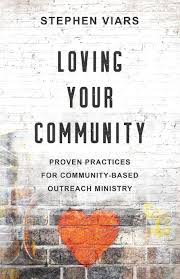AUTHOR: G. Jeffrey MacDonald
PUBLISHER: Louisville, LY: Westminster John Knox Press, 2020, (180 pages).
For many churches, pastors are hard to find. More specifically, finding the right fit between pastor and church is even more difficult, if not impossible. The need will always be there, but pastors will come and go. If one casually checks the websites of various churches, one would quickly realize how many churches need to hire clergy for their various ministries. The signs are not encouraging. With more seminaries shutting down or downsizing due to declining student enrollment, this impacts the pool of new qualified graduates available for churches. Financial challenges are plenty as well. Many churches with aging members experience sharp declines in revenue. With full-time clergy hard to find, financial resources being stretched, and the difficulty of fitting together different expectations, finding a pastor might very well be close to impossible. Churches' budgets are squeezed. Candidates' expectations continue to rise. Demands on sacrificial service are made on a decreasing pool of willing people. In a climate where the demands are so high and the supply so low, we need to do something about it. There needs to be a new model to ensure that churches are still able to function in an environment where full-time clergy are hard, if not impossible to find. What if we lower our search toward part-timers? What if we learn to see opportunities instead of problems? What if we modify the current ways of doing Church to fit the new reality? This would require a paradigm shift. For some, it might mean changing expectations of seismic proportions. Before that could happen, perhaps re-education is required. This book shows the way to prepare our hearts for a new reality. Realizing the potential of part-timers, author G. Jeffrey MacDonald was awarded a grant by BTS Center nonprofit to visit congregations with part-time clergy in ten states in the US. Fair to say, there are some churches where membership dropped when they switched to part-time clergy. Yet, there are also others whose membership stayed strong, even thrived.







